The website collagefestival.ro uses cookies.
The following information is intended to inform users about the placement, use, and management of “cookies” used by the site collagefestival.ro.
We’ve also included a few useful links related to this topic.
Please read the information below carefully:
This website uses its own cookies to provide visitors with a better browsing experience and services tailored to each user’s needs and interests.
In what is known as “Web 2.0”, cookies play an essential role in facilitating access to and the delivery of multiple services that users enjoy online, such as:
An “Internet Cookie” (also known as a “browser cookie” or “HTTP cookie”) is a small file made up of letters and numbers that is stored on a user’s computer, mobile device, or other terminal equipment used to access the Internet.
Cookies are installed via a request sent by a web server to a browser (e.g., Internet Explorer, Chrome), and are completely “passive” — they do not contain software, viruses, or spyware and cannot access information from the user’s hard drive.
A cookie is composed of two parts: the name and the content (or value).
Moreover, the lifespan of a cookie is technically limited. Only the web server that sent the cookie can access it again once the user returns to the associated website.
Cookies themselves do not require personal information to be used, and in most cases, do not personally identify Internet users.
There are two main categories of cookies:
Cookies provide a link between a web browser (the user) and a specific web server (the site). If the browser accesses that server again, it can read the stored information and respond accordingly.
Cookies ensure a pleasant browsing experience and support efforts by many websites to offer comfortable services (such as online privacy settings, site language preferences, shopping carts, or relevant advertising).
Cookies are managed by web servers, and their lifespan can vary significantly depending on their purpose.
Some are used only during a single session and are not retained after the user leaves the website (“session cookies”). Others are kept and reused each time the user returns to the site (“persistent cookies”).
However, cookies can be deleted by the user at any time via their browser settings.
Some parts of content on websites may be provided by third-party providers (e.g., news widgets, videos, or ads). These third parties may also place cookies through the site — known as “third-party cookies.”
Third-party providers must also comply with applicable laws and the site owner’s privacy policies.
Cookies store information in a small text file that allows a website to recognize a browser. The server will recognize the browser until the cookie expires or is deleted.
Cookies store important data that enhance your Internet experience (e.g., language preferences, keeping users logged into their accounts, online banking security, maintaining shopping cart contents).
Cookies are central to the efficient operation of the Internet, helping to create a user-friendly and personalized web experience. Refusing or disabling cookies can make some websites unusable.
Disabling cookies does not mean you will no longer receive online ads — just that they will no longer be tailored to your preferences or browsing behavior.
Examples of common uses for cookies (that don’t require a user account):
Cookies are not viruses! They are plain-text files — not code — and cannot be executed or auto-run.
Because they do not perform these functions, they cannot replicate or spread and are therefore not viruses.
However, cookies can be used for malicious purposes, since they store data about a user’s browsing behavior and preferences. This information can be used as a form of spyware. Many anti-spyware tools regularly flag cookies for deletion.
Most browsers have built-in privacy settings offering different levels of cookie acceptance, duration, and automatic deletion.
Cookies constantly transmit data between the browser and server. If an unauthorized party intercepts this data (e.g., on an unencrypted Wi-Fi network), cookie contents could be accessed.
Some attacks exploit improper cookie settings on servers. If a website doesn’t require secure (encrypted) communication, attackers may trick the browser into sending cookies over insecure channels.
To avoid this, always use secure (HTTPS) connections when possible, especially on sites requiring login or personal data.
Given their wide use across popular websites, cookies are nearly unavoidable. Disabling cookies may prevent access to many major websites, such as YouTube, Gmail, Yahoo, and others.
Here are some tips to ensure safe and cookie-aware browsing:
Cookies are everywhere and essential for accessing the best parts of the Internet. With a clear understanding of how they work and their benefits, you can take the right security measures to browse confidently.
Disabling or refusing cookies may make some websites difficult or impossible to use. Also, refusing cookies doesn’t mean you won’t see online ads — just that they won’t reflect your browsing behavior.
Most browsers allow you to change your cookie settings, typically found under “Options” or “Preferences.”
If you want to learn more about cookies and how they work, we recommend:
